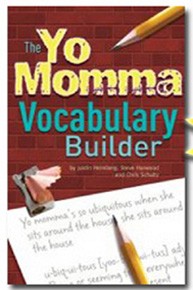 When we bought our place in Santa Fe, the selling realtor told us a vague story of a lawsuit concerning the development of the large piece of property next to ours. I was reminded of this the other day, and I spent a bit of time with Google trying to find out more information. I found the judgment quickly, but the legal jargon was awfully confounding. What’s a “protectable property interest?” All I came up with at first were more judgments and yet more lawyer-ese. By changing “protectable” to “protected” I think I was able to figure it out.
When we bought our place in Santa Fe, the selling realtor told us a vague story of a lawsuit concerning the development of the large piece of property next to ours. I was reminded of this the other day, and I spent a bit of time with Google trying to find out more information. I found the judgment quickly, but the legal jargon was awfully confounding. What’s a “protectable property interest?” All I came up with at first were more judgments and yet more lawyer-ese. By changing “protectable” to “protected” I think I was able to figure it out.
![]() As I told the story of the lawsuit and my frustration with the words to my husband over dinner, I asked aloud whether I just needed to work on my vocabulary. Last year I noticed that I used the generic word “funny” when I really wanted to use something more specific — like “ironic” or “absurd” or “clever” or “risible” or “odd” or … With what seems like a lot of concentration, I’m making some headway with that.
As I told the story of the lawsuit and my frustration with the words to my husband over dinner, I asked aloud whether I just needed to work on my vocabulary. Last year I noticed that I used the generic word “funny” when I really wanted to use something more specific — like “ironic” or “absurd” or “clever” or “risible” or “odd” or … With what seems like a lot of concentration, I’m making some headway with that.
![]() Then, on Sunday, in the On Language column of the NY Times Sunday Magazine, Ammon Shea writes about whether worrying about one’s vocabulary size is worth the trouble. He says
Then, on Sunday, in the On Language column of the NY Times Sunday Magazine, Ammon Shea writes about whether worrying about one’s vocabulary size is worth the trouble. He says
There are thousands of books and Web sites, many of them quite commercially successful, that promise to help redress the problem. The cover of the audio book Wordmaster exhorts you to “Improve your word power and improve your life!” The Web site Verbalsuccess.com avers that its method will earn you greater respect in life and allow you to make more money after using it for just a week. Others make promises of a more modest nature, like the cautious claim in the book The Words You Should Know to Sound Smart that it is “possible” that learning its words “may even put some money in your pocket.”
But I loved the title of another book he mentions, The Yo Momma Vocabulary Builder. Shea ends his essay with this thought, which made me remember why I loved words in the first place:
the contemporary book that gives perhaps the most romantic explanation for why you should learn words is The Yo Momma Vocabulary Builder, which says that the “primary reason to seek a larger vocabulary has nothing to do with impressing people, cultivating professional gain or building scholarly achievement.” The reason the authors of this curious book give for learning new words? “It makes life more interesting.”
Read Shea’s entire essay here.
